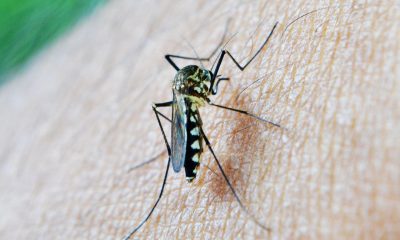Costa Blanca
The Portús campsite to reopen but will no longer be a nudist resort
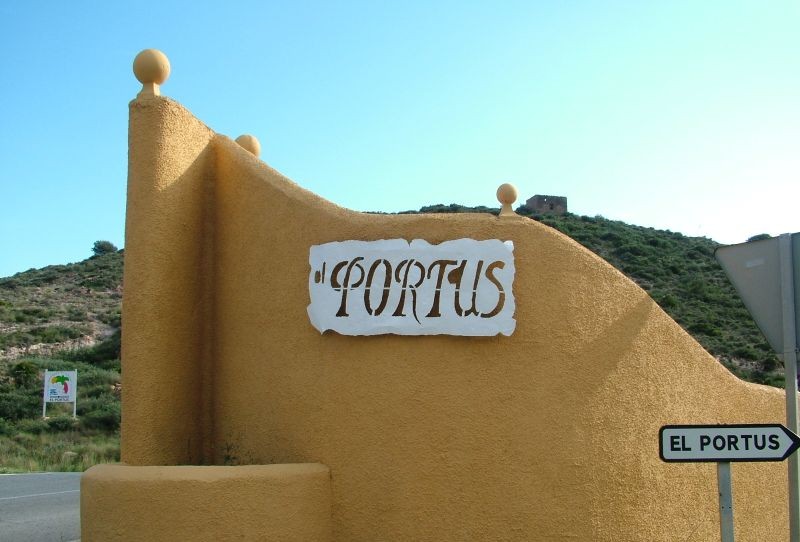
On Friday, April 25th, Camping El Portús users were notified via email that the complex will relinquish its naturist status upon its reopening following its renovations.
According to company sources, the campsite will reopen on August 1st with “renovated facilities, new services, and a dedication to sustainable tourism.” In this new phase, the campsite will function as a textile facility and will be open year-round.
The campsite’s pitches will be spacious and furnished with a diverse array of facilities. Additionally, the accommodations, which encompass mobile homes and apartments, have been renovated to enhance comfort. They include private terraces, air conditioning, top-quality beds, and renovated restrooms and kitchens. Additionally, the campsite will include two recreational pools and two restaurants with distinctive menus.
Additionally, the reception, supermarket, and communal bathrooms have been modernised to reflect the campsite’s current aesthetics and natural surroundings.
In addition, they observed that it will provide a diverse selection of complementary activities, including kayaking, climbing, and diving, which will encourage active and nature-based tourism in a critical region of Cartagena’s littoral.
The new owners of the campsite are dedicated to the development of an environmentally friendly paradigm in this new phase of the project. To accomplish this, “the utilisation of indigenous species is promoted, vehicle traffic is diminished, and pedestrians and cyclists are prioritised.”
They adhered to conventional architectural principles during the renovation, employing locally sourced prefabricated materials to mitigate the project’s environmental impact. “The landscaping project is in harmony with its surroundings, thereby fostering biodiversity and preserving the natural environment,” they concluded.
For more information see the website here https://www.elportus.com/en/
Discover more from Costa Blanca Daily
Subscribe to get the latest posts sent to your email.
Costa Blanca
Mosquitoes in Elche and Santa Pola are on the warpath

Several weeks have passed, and the persistent proliferation of mosquitoes continues to be a source of complaint for residents of El Altet, Arenales del Sol, Gran Alacant (Santa Pola), and other adjacent Elche districts. Although the issue has been present for approximately three weeks, the discomfort has become even more apparent during the May long weekend, when, as was the case during Holy Week, many visitors chose to rest and decompress for a few days.
The presence of these insects, and particularly their attacks, has been most apparent during the early morning and late afternoon hours. This situation is quite common for people who have lived in these regions year-round for an extended period. Mosquitoes are inevitable after a few days of rainfall, as the overwhelming majority of individuals are aware. They also emphasise that this is insignificant in comparison to the situation that existed decades ago, when there were no fumigation programmes and mosquitoes were a much more severe nuisance in terms of density and duration.
There is a significant number of individuals who have expressed their dissatisfaction with mosquitoes in recent times. This is likely due to the fact that a significant number of these individuals are tourists or owners of second homes who were eager to take advantage of the favourable weather and spend a few quiet days. However, they have ultimately been bothered by these pesky insects.
On May 1st, the mayor of Arenales del Sol, Alejandro García Raduán, also acknowledged that a significant number of mosquitoes had been observed on that day and promptly notified the Elche City Council.
Increased workload
The Elche City Council, in collaboration with the Department of Health and the company CTL, announced on April 15th that they had intensified mosquito fumigation efforts in all municipal districts in response to the recent rainfall. The objective of these efforts is to prevent larvae from hatching in both small and large water accumulations.
Inma Mora, the councillor for the area, stated that the company in charge was conducting an inspection of the various flood-prone areas to ascertain the areas that required the most intensive larvicide and adulticide treatments to prevent mosquitoes from hatching after the rainfall.
Estefanía Hernández, the head of the company responsible for fumigation, stated, “We have commenced inspections and larvicidal treatments with non-harmful biological products in all wetlands, ponds, and any outbreaks that may have developed following the rains.” In particular, these treatments are administered on a weekly basis or whenever adult mosquitoes are observed in a particular area of the reed bed, saline marsh, or vegetation.
Nevertheless, it is crucial to bear in mind that the City Council is prohibited from carrying out treatment within private properties or directly targeting homes, which are frequently used as breeding grounds for the tiger mosquito. This species can reproduce in a small amount of water that can accumulate in saucers, flowerpots, swimming pools, or tarps that cover pools during the winter.
Working together
In this regard, the Health Councillor, Inma Mora, requested that all residents of Elche’s districts collaborate in their efforts to avoid storing water in containers and, whenever feasible, to conduct some form of treatment within their residences.
On March 21st, the Santa Pola City Council announced that flooded areas in various sections of the municipality were being treated and reinforced with biological treatments to control larvae. The announcement was made by Borja Merino, Councillor for Tourism, Health, and Greater Alicante. According to municipal sources, these biological larvicides are unharmful to wildlife and prevent mosquitoes from establishing themselves in these regions and disseminating to neighbouring areas.
The Santa Pola City Council emphasised the significance of mosquito control treatments in residential areas and private residences, as mosquito larvae are able to develop in any area with stagnant water due to warm temperatures. Santa Pola also continued the therapies on April 25th.
Additionally, pharmacies are experiencing an increase in the sale of mosquito repellent products, and mosquito netting companies are also experiencing an increase in demand as a result of the increasing prevalence of these insects.
Discover more from Costa Blanca Daily
Subscribe to get the latest posts sent to your email.
Costa Blanca
The installation of sail awnings to provide shade in Elche has started
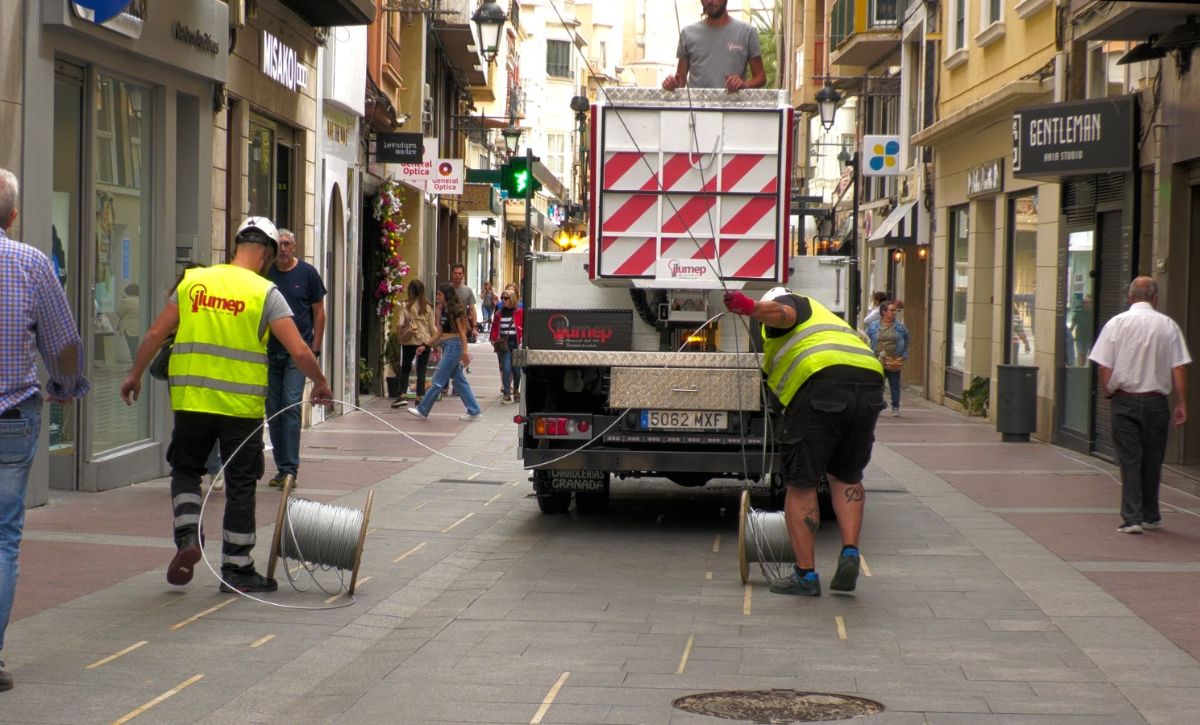
The Shade Plan, which includes the installation of shade sails on public roadways, began this week on several of the primary shopping streets in the municipality’s historic centre, including Obispo Tormo Street, Hospital Street, Major del Pla Street, and Corredora Street.
Claudio Guilabert, the Councillor for Public Services, emphasised that “it is a very positive step— a commitment by this municipal government to provide shade, especially during the hottest months of the year, thereby creating greater climate comfort.”
Guilabert underscored that the primary goal of installing the shade sails is to “encourage activity, both for tourists and locals, with much more pleasant and enjoyable walks,” as well as to reduce the seasonality of the commercial offering with shaded areas.
The awnings, which will be designated as municipal property, are included in the €297,000 investment in the project. They will be installed in May and removed between September and October for a period of two years, contingent upon weather conditions and the requirements.
Additionally, the councillor for the region has verified that efforts are currently ongoing to ensure that “these shade sails” can be extended to other commercial streets in the municipality, such as the districts or neighbourhoods of Altabix, El Pla-Sector V, and Carrús, by the end of the year.
Discover more from Costa Blanca Daily
Subscribe to get the latest posts sent to your email.
Costa Blanca
In Alicante, sex is practiced 6.1 times a month, less than the national average

What is the manner in which Spaniards perceive their sexuality? What is the frequency of their sexual intercourse? Which fantasies are most prevalent and in which regions? These are some of the enquiries addressed in the most recent study on sexual habits in Spain in 2025, which was conducted by the specialised online store Diversual.com. Diversual.com has established itself as a reliable indicator of the health and sexual habits of our nation in recent years. The report, which was conducted by sexologists Lucía Jiménez and Bárbara Montes, compiles the testimonies of 4,794 individuals between the ages of 18 and over 60. It provides a comprehensive analysis that is classified by gender and province.
The study indicates that Spaniards engage in sexual activity with another individual on an average of 6.3 days per month. Girona is the province with the least sexual relations, with an average of 5 days per month, while Teruel is the most sexually active, with an average of 8.1 days per month. The most active cities are Jaén (8.0), Cáceres (8.0), Ciudad Real (7.9), and Ávila (7.8), while the least active cities are Tarragona (5.2), Álava (5.3), Córdoba (5.3), and Orense (5.5). The Valencian Community’s average for the three provinces is 6.3 times per month, with Valencia leading the way at 6.7, while Alicante and Castellón have an average of 6.1 times.
During sexual intercourse with another individual, 75.4% of the respondents reported experiencing orgasm. This percentage exhibits a substantial gender disparity: 86.1% of men consistently accomplish it, while 65.9% of women do. Curiously, the orgasm incidence is highest among women over 65, at 81.3%. The province with the highest incidence of orgasms with a partner is Guadalajara (84.7%), while León is at the opposite end of the spectrum, at 68.6%. The Valencian Community is barely below the national average in this regard, with Castellón at 75%, Valencia at 74.8%, and Alicante at 74.6%.
Orgasms are even more prevalent in the context of masturbation, with 88.4% of men and 86.6% of women experiencing them on a regular basis. During solitary masturbation, climax is reported by 90.4% of men and 86.6% of women.
Fantasy and infidelity
The results suggest that 28.9% of the respondents admitted to having been unfaithful at some stage in a stable relationship. The rate of female infidelity is marginally higher, with a maximum of 30%. Girona is the province with the highest infidelity rate, at 40.6%, while Toledo is the most faithful, at only 12.5%. This is based on geography.
The most prevalent sexual fantasy, as indicated by 57.7% of respondents, is the desire to engage in a threesome. Teruel (83.3%), Ávila (75%), and Zaragoza (67.9%) exhibit an especially high level of this ambition. In provinces such as Lugo (64.2%), Badajoz (62.3%), and Vizcaya (60%), relationships in locations other than the bedroom are the most prevalent choice. The fantasy of being sexually subjugated is the most prevalent in Huesca (70.3%), Zamora (66.6%), and Ciudad Real (58.8%).
In terms of fantasies that have been realised, 69.3% have engaged in sexual activity outside of the bedroom, while 56.3% have engaged in sexual activity in public areas. On the other hand, only 1.8% of individuals have engaged in sexual intercourse with a celebrity, and 4.1% have been involved in a swinger relationship.
Pressure to refrain from using protection
The diversual.com study contained some of the most concerning data regarding contraception use: 40.6% of men and 52.6% of women have engaged in unprotected sexual activity with non-steady partners. Additionally, 45.8% of women report that they have experienced peer pressure to forgo the use of a contraceptive, which is significantly higher than the 14% recorded among men.
Additionally, Spaniards devote an average of 18.9 minutes to non-penetrative sexual activities, with the 55-64 age group dedicating the most time (21.2 minutes). Oral intercourse (88.8%) and partnered masturbation (71.6%) are the most prevalent practices. Conversely, threesomes and companion swapping account for a mere 2.4%.
The bedroom is the preferred location for intercourse for 73% of participants, with the living room (11.7%) and hotels (6.2%) following in that order.
Although 74.2% of respondents believe that it is easier to locate a sexual partner in the present day, 42.3% continue to believe that it is still difficult to do so. Pornography is accessible from a young age; 57.5% of individuals first encountered pornography between the ages of 8 and 16, with an average age of 15.2. It is currently estimated that males watch pornography an average of 11.5 days per month, while women watch it an average of 2.7 days per month. Palencia is the province with the maximum consumption (9.8 days per month), while Albacete has the lowest (3 days).
A study to enhance and comprehend sexual well-being
“Lucía Jiménez, a sexologist at Diversual, explains that the objective of this study is to enhance one’s comprehension of individuals’ sexuality in order to continue to support their welfare.” Bárbara Montes, a sexologist at Diversual and co-author of the study, explains, “Our objective is to facilitate dialogue, advocate for a more equitable and healthier sexual lifestyle, and provide support for sexual education from a realistic and respectful perspective.”
Discover more from Costa Blanca Daily
Subscribe to get the latest posts sent to your email.
-
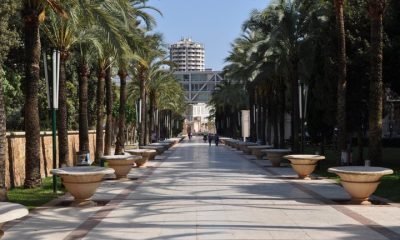
 Costa Blanca2 weeks ago
Costa Blanca2 weeks agoBenidorm studies the temperature of its streets to understand “heat island effect”
-

 News2 weeks ago
News2 weeks agoThe Generalitat presents the road map for the widening of the CV-95 between Orihuela and Torrevieja
-
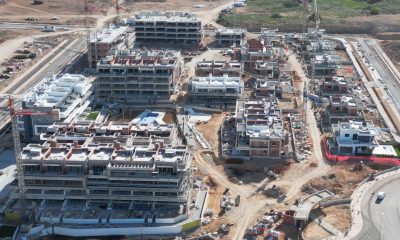
 Costa Blanca2 weeks ago
Costa Blanca2 weeks ago44% of homes in Alicante province were purchased by foreigners
-

 Costa Blanca2 weeks ago
Costa Blanca2 weeks agoCompetition on Spain’s railways is driving down prices
-

 Costa Blanca2 weeks ago
Costa Blanca2 weeks ago‘Cartagena’, the new electric Navy ship
-

 Costa Blanca2 weeks ago
Costa Blanca2 weeks agoCouple arrested for a marijuana plantation with 481 plants hidden in their home
-

 Costa Blanca2 weeks ago
Costa Blanca2 weeks agoFour minors arrested for smuggling drugs on a school trip
-

 Costa Blanca2 weeks ago
Costa Blanca2 weeks agoAlicante port gets an electric boat for cleaning the water surface

